
Enhancing Student Outcomes and Teacher Practice through Math Mastery: A Comprehensive Study Tour and Curriculum Framework Development.
As a primary school teacher with ten years of classroom experience, I’ve had the opportunity to teach across year levels from Prep to Year 3. Throughout my teaching journey, I’ve developed a strong passion for ensuring that every student feels a sense of success in the classroom and equally, that every teacher feels confident and equipped to deliver high-quality lessons. Over time, I’ve become increasingly interested in how we can bring greater consistency and clarity to the way we teach mathematics across the early years.
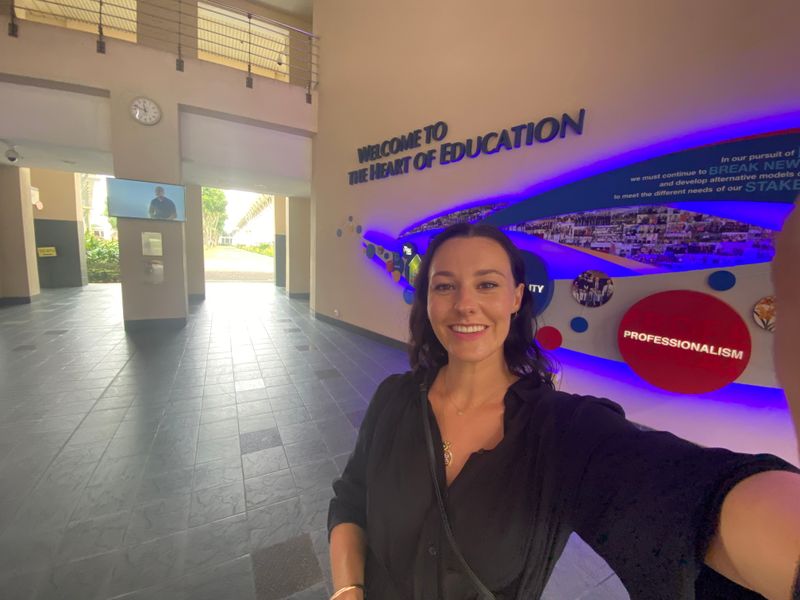
In 2024, I was fortunate to be awarded the inaugural Toowoomba Grammar School Teaching Fellowship to explore this interest more. My proposal, titled Enhancing Student Outcomes and Teacher Practice through Math Mastery: A Comprehensive Study Tour and Curriculum Framework Development, focused on investigating how the Math Mastery approach could strengthen both student understanding and teacher instruction in mathematics. This opportunity took me to Singapore to investigate the Math Mastery approach - an internationally recognised model of mathematics instruction that supports every student to achieve deep understanding through carefully sequenced, explicit teaching.
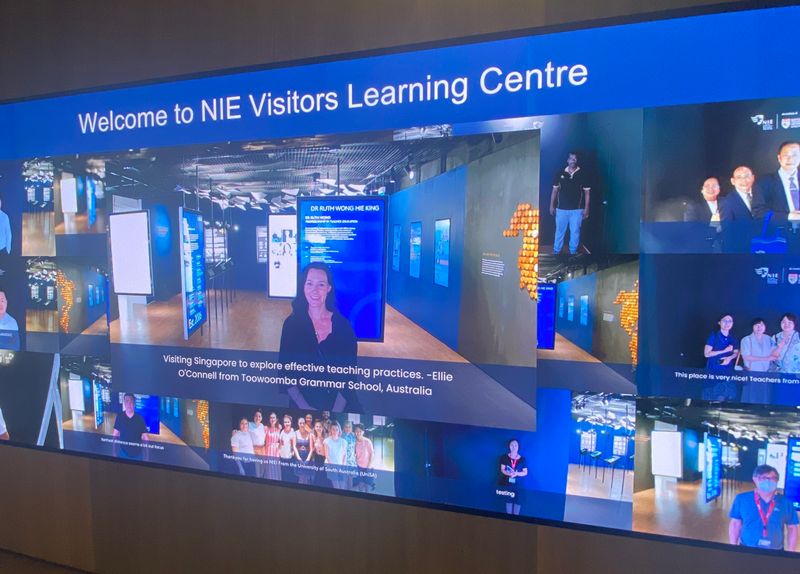
Why Mathematics? Why Now?
Across Australia, there is growing national concern about the long-term decline in mathematics achievement. Reports such as the Gonski Review (2018) highlight that many students are not mastering the basic skills needed for future learning, and that teachers need more explicit, structured tools to support all learners. In the early years of schooling—where concepts are first introduced, and mathematical mindsets are formed—it’s crucial that instruction is clear, consistent and effective. Gaps in understanding at this stage can have long-lasting effects on a child’s confidence and progress. The fellowship was an opportunity to examine international best practices and bring back evidence-informed strategies that could enhance both student outcomes and teacher practice in our own School.
Learning from Singapore: Schools and Insights
During my study tour in Singapore, I visited two leading international schools: Dulwich College and Invictus International School. Both schools use mastery-based approaches to mathematics, with structured, well-sequenced programs designed to develop deep conceptual understanding. At Dulwich College I observed math lessons from Years 1 to 5 that emphasised both mastery and practical application. The classrooms fostered a calm, focused learning environment in which teachers guided students through new concepts using clear, structured instruction, ensuring mastery through modelling, guided practice and checking for understanding before progressing. I also engaged in discussions with the school’s mathematics leadership team, who shared their planning processes and how they support teachers to differentiate within whole-class teaching.
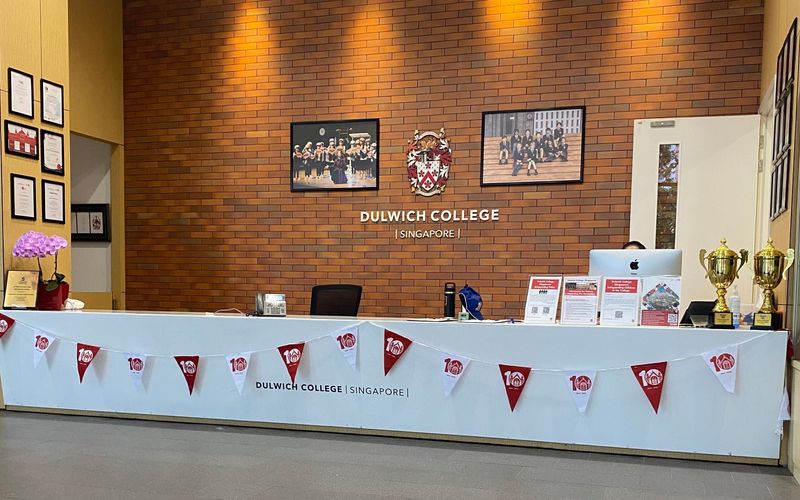
Invictus International School offered a contrasting yet equally valuable perspective. With a diverse cohort of learners and a flexible curriculum model, their team demonstrated how mastery principles can be embedded in a range of contexts. I also had the opportunity to meet with local educational consultants and curriculum developers, who offered insights into how Singapore’s national curriculum supports cumulative learning, daily review and concept mastery from the early years onwards.
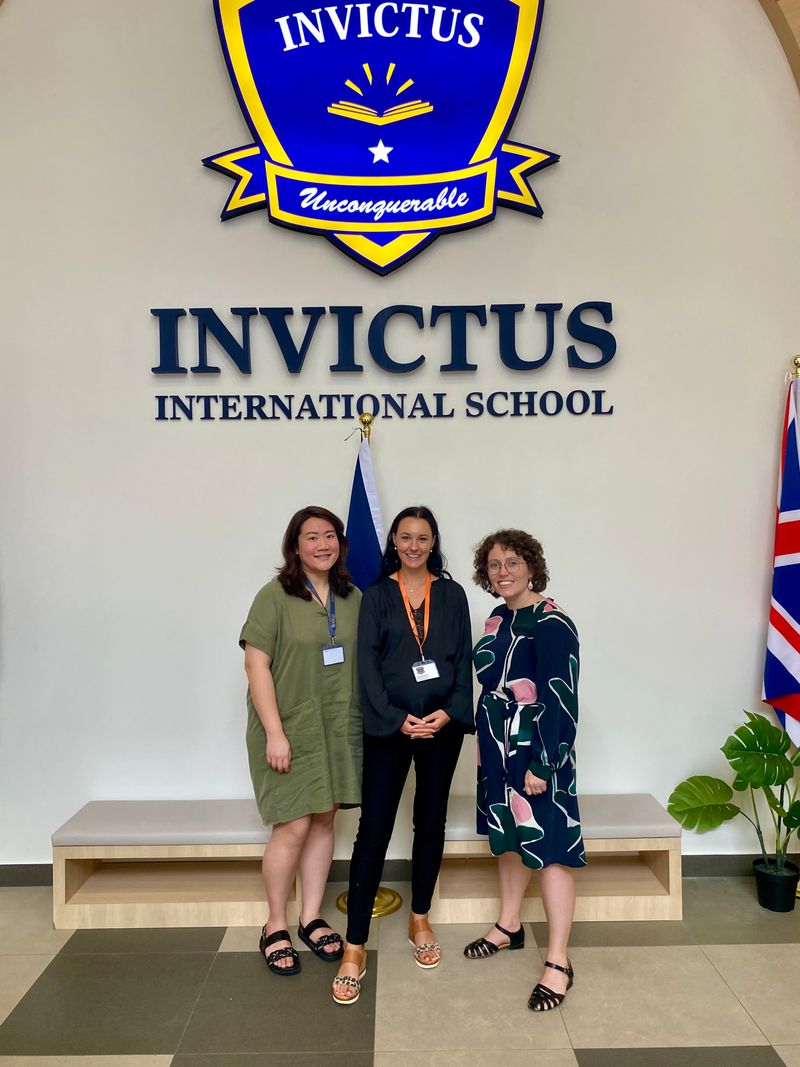
Key Findings: What Makes Mastery Work?
My observations confirmed the power of structured, explicit teaching in building strong foundations in mathematics. These were the key elements that stood out across all settings:
- Clear Learning Objectives
Teachers clearly define what students need to know and be able to do at the end of each unit or lesson.
- Whole-Class Instruction with Embedded Differentiation
Rather than streaming students by ability, mastery classrooms taught concepts to the whole class while using questioning, scaffolding and targeted support to meet individual needs.
- Corrective Instruction
Students who don't achieve mastery receive additional instruction or support to address knowledge gaps.
- Cumulative, Carefully Sequenced Learning
Each lesson built directly on the last, with time allocated for review and consolidation. This ensured that no student was left behind and that concepts were truly understood before new material was introduced.
- Mathematical Language and Reasoning
Teachers modelled precise vocabulary and encouraged students to explain their thinking. This supported deeper reasoning and helped students internalise core concepts.
- Learning Routines
Clear instructional routines and behaviours are established in every classroom, reinforcing expectations and supporting learning.
- Lesson Resources
Hands-on materials and visual examples are carefully chosen to help students connect with new concepts in ways that suit their learning needs.
- Fluency
Essential number facts are practised until automatic, helping students reduce cognitive load, enhancing students’ ability to focus on new and more complex ideas.
- Calm, Confident Learners
Most powerfully, students appeared confident, focused and proud of their mathematical thinking. The clear structure and shared learning journey contributed to a positive and inclusive classroom culture.
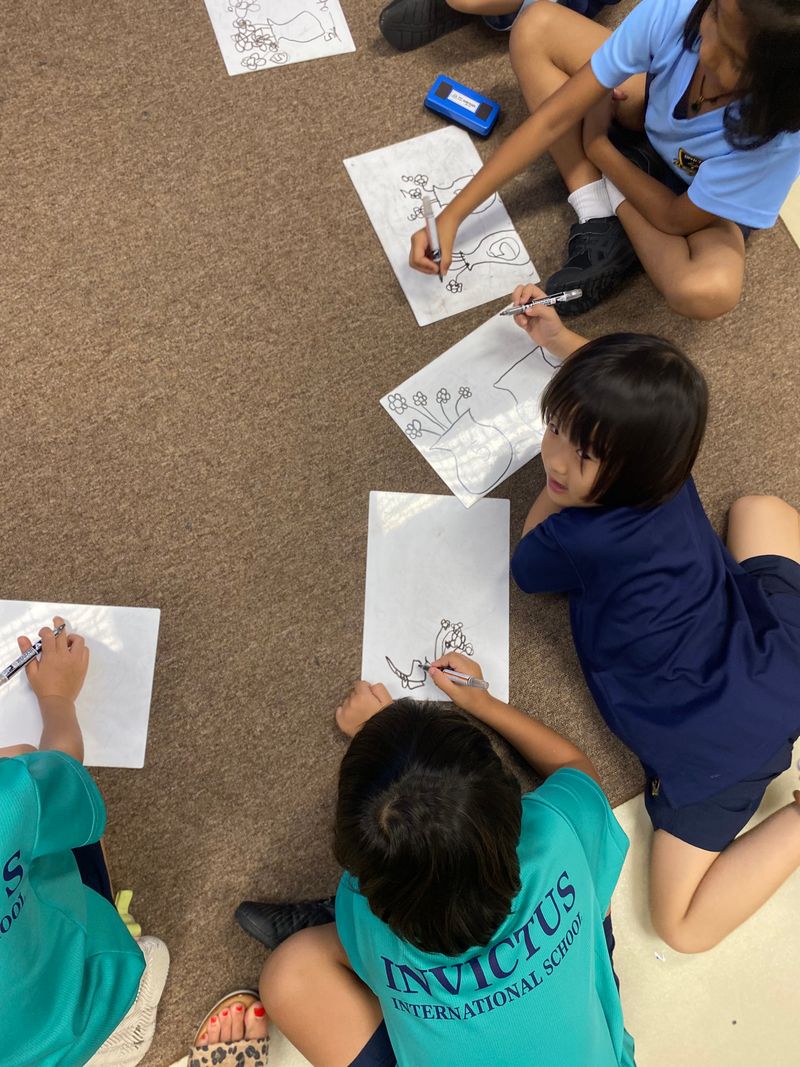
Global Perspective: Insights from Kinder World School
As a part of my research, I was able to engage in a conversation with Peter Baker, Principal Supervisor of 13 KinderWorld International Schools across Vietnam, I was able to dive deeper into how the Math Mastery approach works in large, diverse educational settings. These schools have adopted the Singapore Math model, a mastery-based framework built around explicit teaching and cumulative learning - many of the same principles I explored during my study tour.
Peter shared that their decision to adopt this approach was driven by a need for a consistent, evidence-based program that teachers could pick up quickly, deliver confidently and implement cost-effectively. “We started the explicit teaching model a couple of years back,” he explained. “We call it the KinderWorld Model. Retrieval practice to strengthen knowledge and problem-based application of learning is also included. I think it certainly makes a difference.”
What stood out to me in our discussion was just how closely their journey mirrors our own at TGS. We have already embedded strong practices in literacy through well-structured, whole-school programs that align with explicit teaching and the science of learning. However, mathematics remains an area where we see room for greater consistency and greater gains.
While our data confirms that we continue to perform above the state average in mathematics, recent NAPLAN results highlight a national decline in numeracy - a trend that we are aiming to avoid in our own School’s results. While we continue to do well, we have an opportunity and a responsibility to do even better for our boys. This is not just a local issue. In 2015, the Office of the Chief Scientist collaborated with ACARA to examine schools across Australia that had made significant improvements in numeracy over two years. Their report found that mastery-oriented environments were a consistent feature in high-performing schools (Smith et al., 2028).
When I asked Peter how the performance of his students compared to their peers in Australia, his response was compelling:
“We’ve had feedback from parents - many of whom are teachers - saying that when their children return to Australia, they are at least one to two years ahead in mathematics compared to their peers at home.”
This reinforces what global research has been saying for some time: structured, explicit, mastery-based teaching works. And more importantly, it works for all learners - not just the confident few.
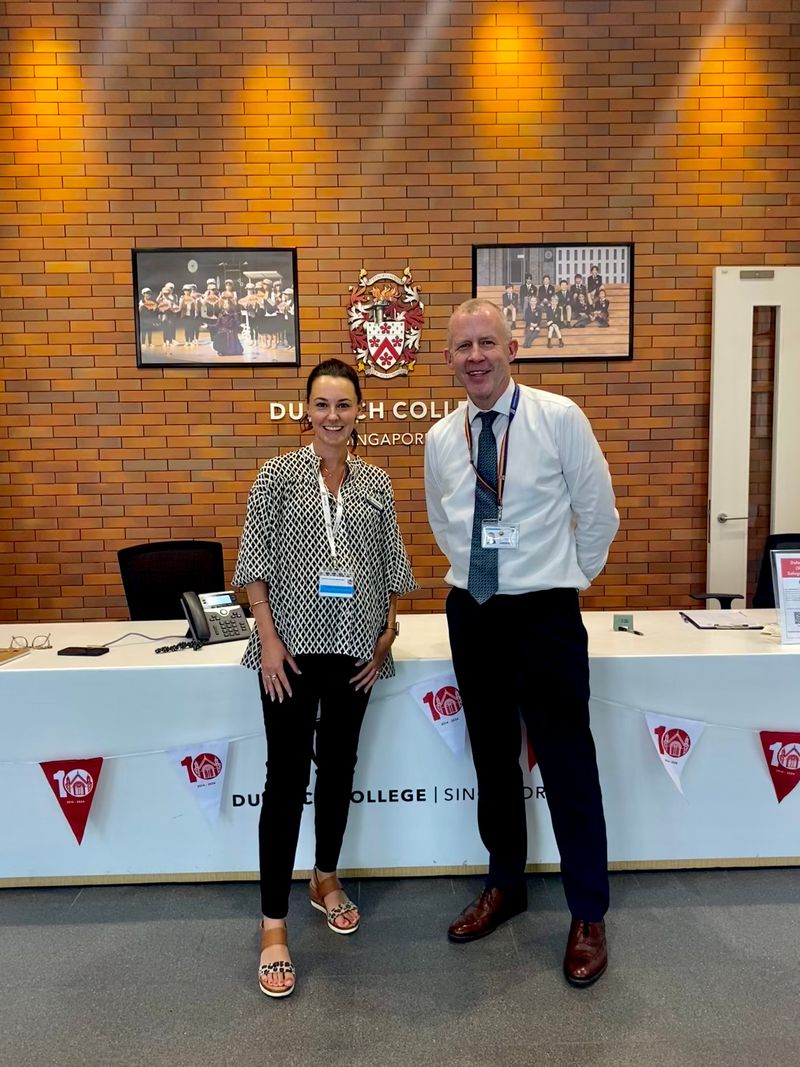
Bringing It Home: What’s Next for TGS?
I’m incredibly grateful for the opportunity this fellowship has provided - not only in shaping and deepening my own practice, but in contributing to a broader, shared vision for mathematics at TGS. This experience reinforced my belief that every student can succeed in mathematics when we give them the right tools, time and teaching. We are now laying the foundations for a clear and united approach to numeracy, one that will equip every boy with the confidence and skills to succeed - not just in the classroom, but throughout their schooling and beyond. And just as importantly, we’re building a community of confident teachers who are equipped to deliver lessons that are clear, consistent and deeply impactful.
I would like to sincerely thank Dr John Kinniburgh for granting me the opportunity to undertake this Fellowship. His support and encouragement throughout the process has been instrumental, and I am truly grateful for his guidance and mentorship. Dr Kinniburgh’s commitment to prioritising high-quality professional development for staff continues to shape a culture of growth and excellence in teaching and learning at TGS.
Latest Blog
Better Together - 2025 IBSC Conference
With its global network of over 300 member schools spanning more than 20 countries, the IBSC advocates for educational opportunities that focus on the holistic development of young men. This year, the IBSC Annual Conference was hosted by Belmont Hill School in Boston, United States, where teachers, school leaders and experts in boys' education gathered under the inspiring theme of "Better Together". Toowoomba Grammar School was proudly represented by Mr Luke Rawle, Ms Abby Varley and Mr Henry…
Reliving the Past, Shaping the Future
Mr Nicholas Hess has been a coach for both rugby and tennis and a boarding supervisor after he finished Year 12 His connection to the School runs deep, from the friendships he formed as a student to his dedication now as a Boarding House Assistant and long-standing member of the Old Boys’ Association (OBA). TGS has had a lasting impact on his life, and he has been only too willing to give back to the place that he loves so much. “There’s something special about being part of the Blue and Gold,”…
Never Give Up
Six years ago, after experiencing ongoing muscle weakness, he was given a life-changing diagnosis - Limb Girdle Muscular Dystrophy 2i (LGMD2i). Basically, Matt’s body doesn’t produce the chemical substance, Ribitol which is crucial for muscle function. He was told there is no treatment or cure, that he would be wheelchair bound in five to ten years and require oxygen, with the likelihood of an early death. But Matt would not accept that fate. Instead, he took up the fight – not just for…
A Magical Collaboration - “Midnight: The Cinderella Musical”
A co-production between Toowoomba Grammar School and Fairholme College, this enchanting musical captivated audiences at the Empire Theatre for two nights in early June, leaving a lasting impression on all who attended. A Story Brought to Life “Midnight” is a fresh take on the Cinderella story, featuring music and lyrics by John Foreman and Anthony Costanzo, with orchestrations by Anthony Barnhill and additional contributions from Kate Miller-Heidke. The book, written by Dean Murphy and Pip…
Pioneering Excellence: Launching TGS's Athletic Development Program
Our Athletic Development Program represents a paradigm shift in how schools nurture sporting talent—combining cutting-edge technology, evidence-based practices and a whole-person philosophy that prepares young men for success beyond the scoreboard.
Reflecting on the Past, Walking Forward Together
This week is an important time for all Australians to learn about our shared histories, cultures and achievements, and to reflect on how we can each contribute to achieving reconciliation. The theme for NRW 2025, 'Bridging Now to Next,' calls on us to honour the past, acknowledge the present and actively build a better future. It reminds us that reconciliation is not a destination, it is a journey guided by reflection, respect and a shared commitment to walking together. As we look back on the…
A Bright Start to our Rising and Leading Series
More than 150 members of the Toowoomba and Darling Downs community joined us to hear from leading demographer and data commentator Simon Kuestenmacher, whose presentation sparked fresh thinking about the decade ahead.
Women of Grammar Luncheon
A Tribute to the Heart of the School Originally scheduled for International Women's Day but rescheduled (thanks, Cyclone Alfred!) to the eve of Mother's Day, the timing felt serendipitous. It was a day to honour the women—past and present—whose quiet strength, tireless support and enduring love have shaped the School's legacy and the lives of its boys for 150 years. The marquee was beautifully appointed for a day of merriment
Lachlan Stuart's Marathon Feat
Mr Stuart will return to TGS again for the event held on Wednesday, 28 May to support the Year 12's significant fundraising G150 Gift Run event. The boys are running 1500km in a relay format to honour a 1968 TGS Interact Club fundraising project that will help upgrade the original School gates on Herries Street, along with raising funds for the Nerve Connection Foundation.